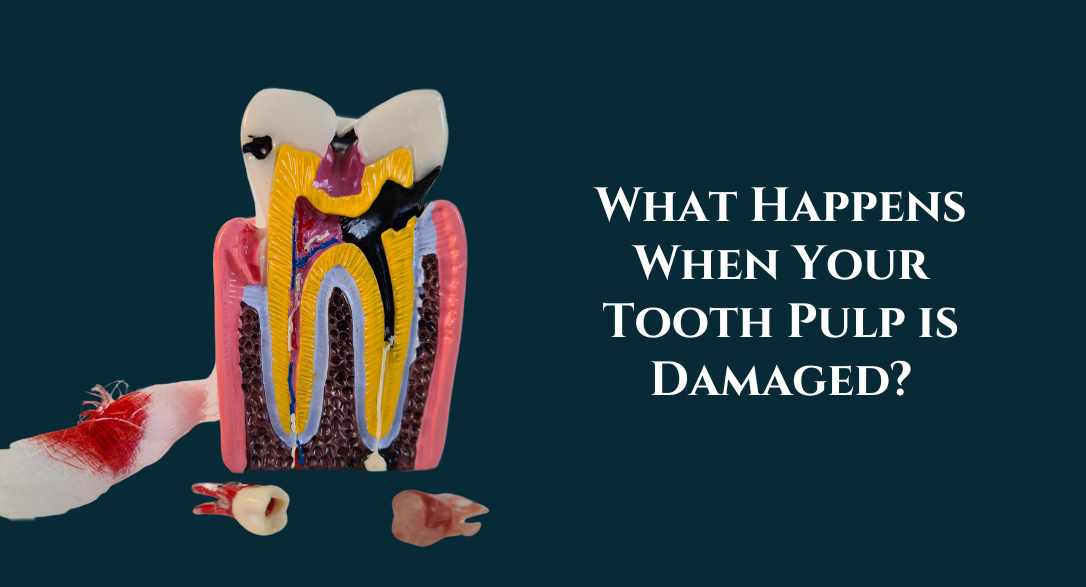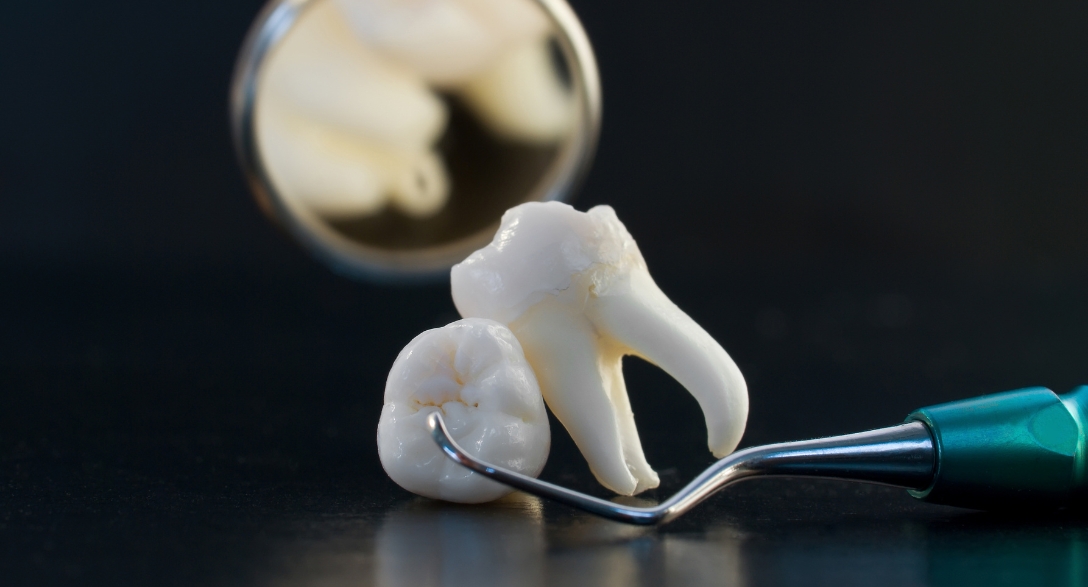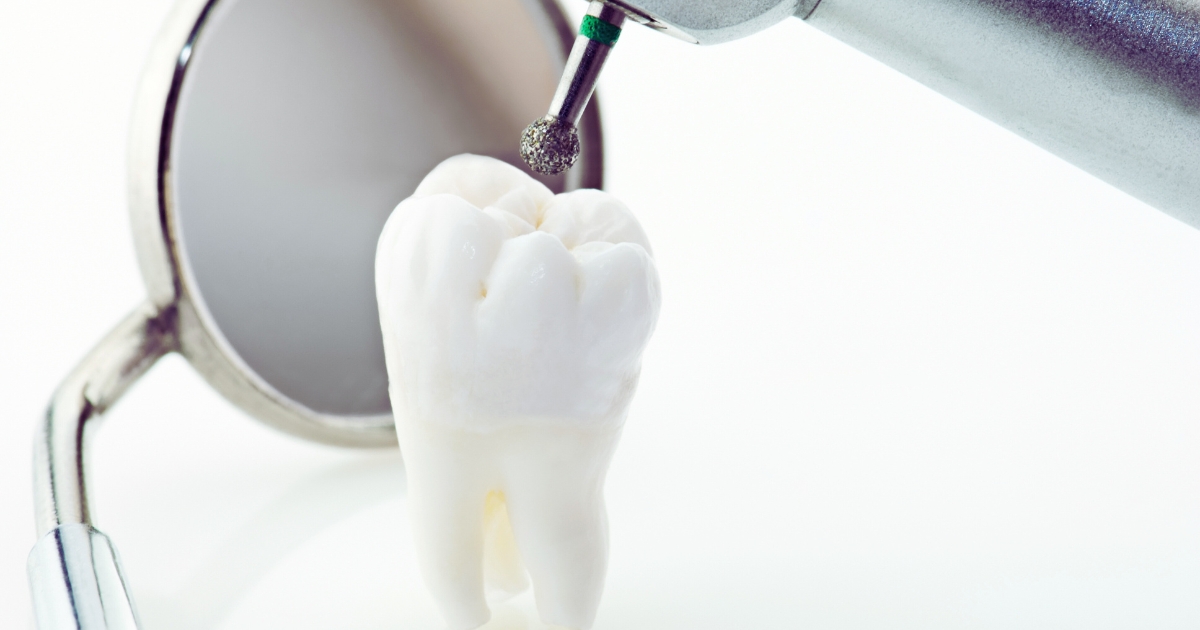Call Us Today 817-737-7668

A tooth’s pulp might not be something you think about often, but it plays a crucial role in your oral health. It’s the soft tissue inside your tooth, containing nerves, blood vessels, and connective tissue, all of which help nourish your tooth and keep it alive.
When something happens to this delicate structure, it can lead to discomfort, complications, and even tooth loss if left untreated. But don’t worry—understanding what can cause damage to your tooth pulp, how to spot the symptoms, and what treatment options exist can make all the difference.
In this guide, we’ll walk you through everything you need to know about tooth pulp damage. Whether it’s caused by decay, trauma, or other factors, we’ll help you understand how it affects your tooth and your overall health.
If you’ve been feeling tooth pain or have noticed unusual symptoms, keep reading! We’ll break down the causes, signs to look for, and the best treatments to save your tooth. Don’t let pulp damage derail your smile—let’s explore the essential steps to protect your oral health.
Tooth Pulp: What Is It and Why Is It Important?
Tooth pulp is a crucial part of your tooth’s structure, hidden beneath the enamel and dentin layers. It is often overlooked, but it plays a vital role in maintaining the health of your teeth. Understanding the importance of pulp can help you protect your teeth better and recognize when something goes wrong.
- What is tooth pulp? The pulp is the soft, living tissue inside the tooth that contains nerves, blood vessels, and connective tissue. It’s located in the center of your tooth, within a space known as the pulp chamber.
- Functions of tooth pulp:
- Nourishing the tooth: The blood vessels in the pulp supply essential nutrients to the tooth, keeping it healthy and strong.
- Sensing temperature: The nerves in the pulp help your teeth respond to temperature changes. They allow you to feel pain or discomfort, alerting you when something is wrong.
- How damage affects dental health: If the pulp becomes infected or damaged due to decay, injury, or other causes, it can compromise the tooth’s health. Without proper treatment, pulp damage can lead to severe infection, tooth loss, and even affect surrounding teeth.
Taking care of your pulp is vital for your oral health. If you experience any signs of damage, seeing an endodontist in Fort Worth can help you prevent further complications.
Common Causes of Tooth Pulp Damage
Tooth pulp can become damaged for several reasons. Understanding these causes is the first step to preventing pulp damage and maintaining a healthy smile.
- Deep decay: When cavities reach the inner part of the tooth, they can expose the pulp to harmful bacteria, leading to infection. Untreated decay is one of the most common causes of pulp damage.
- Trauma or injury: A blow to the tooth, such as from an accident or sports injury, can crack or fracture the tooth. This can allow bacteria to enter and infect the pulp, causing pain and swelling.
- Cracks and fractures: Even small cracks can lead to pulp damage. Over time, bacteria can seep into the tooth, triggering an infection.
- Untreated gum disease: When gum disease goes untreated, it can cause the gums to recede, exposing the tooth’s roots. This increases the risk of pulp infection.
- Repeated dental procedures: Multiple fillings or other treatments can weaken the tooth and expose the pulp to infection. If you have a history of dental work, it’s important to stay vigilant.
Lifestyle habits such as teeth grinding, poor diet, or lack of proper dental hygiene can also increase your risk of pulp damage. Taking steps to protect your teeth is essential for preventing long-term complications.
Recognizing the Symptoms of Damaged Tooth Pulp
Recognizing the signs of damaged tooth pulp early can prevent serious issues and save your tooth. Knowing what symptoms to look for can make all the difference.
- Tooth sensitivity: If you experience pain or discomfort when eating hot, cold, or sweet foods, your tooth pulp may be damaged.
- Discoloration: A tooth that has become darker in color could indicate that the pulp is infected or dying. This is often a sign that the pulp has been compromised.
- Swelling or tenderness: Swelling around the affected tooth or in the gums could mean that the pulp is infected. This may be accompanied by a feeling of pressure.
- Intermittent or persistent pain: If you experience sharp, throbbing pain, or pain that comes and goes, it might be due to pulp damage. Persistent pain that worsens over time requires immediate attention.
- Abscess or pus: An abscess at the tip of the tooth root is a clear sign of an infection in the pulp. It’s critical to seek professional help right away to avoid further complications.
The sooner you notice these symptoms, the quicker you can take action to save your tooth and avoid more severe issues like tooth loss or abscess formation.
The Consequences of Ignoring Tooth Pulp Damage
Ignoring damage to your tooth pulp can lead to a range of serious complications that affect both your oral and overall health. It’s essential to address pulp issues as soon as they arise.
- Infection spread: When pulp damage occurs, bacteria can enter the tooth, leading to infection. If left untreated, this infection can spread to the surrounding tissue, causing more pain and damage.
- Tooth loss: A severely damaged pulp can lead to tooth death. Without proper treatment, the tooth may need to be extracted, leaving gaps in your smile.
- Pain and discomfort: Prolonged pulp damage leads to constant or escalating pain. This not only impacts your ability to eat and speak but also your overall quality of life.
- Systemic health issues: Untreated dental infections, particularly those that involve the pulp, can spread through the bloodstream. This can lead to serious health issues, including heart problems or systemic infections.
- Emotional toll: Chronic dental pain can significantly affect your mental well-being, causing anxiety and stress. Regular dental checkups and prompt treatment can help you avoid this emotional burden.
Addressing pulp damage early prevents these severe consequences, saving your tooth and your health.
Treatment Options for Tooth Pulp Damage
When your tooth pulp is damaged, there are various treatment options available to restore health and function. The right treatment depends on the extent of the damage.
- Root canal therapy: This is the most common treatment for damaged pulp. An endodontist removes the infected or damaged pulp, cleans the tooth, and fills the space to prevent further infection. It can save the tooth and relieve pain.
- Pulp capping: In cases of minor pulp damage, a protective material may be placed over the pulp to encourage healing and preserve the tooth.
- Tooth extraction: If the pulp is severely damaged or the tooth is beyond repair, extraction may be necessary. In such cases, a dental implant or bridge may be used to restore the smile.
- Minimally invasive treatments: Modern dental techniques, like laser therapy, can sometimes be used to treat pulp damage with minimal discomfort and faster recovery times.
Choosing the right treatment requires an evaluation from an experienced endodontist to ensure the best possible outcome for your tooth.
Preventing Tooth Pulp Damage: Tips for Long-Term Oral Health
Prevention is key to avoiding pulp damage and ensuring your teeth remain healthy. By incorporating these habits into your daily routine, you can protect your pulp and maintain a strong, pain-free smile.
- Regular dental visits: Seeing an endodontist regularly for checkups and cleanings can help catch issues like decay or gum disease before they lead to pulp damage.
- Maintain good oral hygiene: Brushing and flossing daily helps remove plaque and bacteria that can cause decay and lead to pulp infection.
- Use a mouthguard: If you participate in contact sports, wearing a mouthguard can protect your teeth from injury and trauma.
- Avoid hard foods: Chewing on hard objects, like ice or non-food items, can crack or damage your teeth, exposing the pulp to bacteria.
- Address teeth grinding: If you grind your teeth at night, speak to an endodontist about a night guard to reduce pressure on your teeth.
Maintaining a healthy lifestyle and practicing good oral hygiene can significantly reduce the risk of pulp damage and other dental issues.
When to Seek Professional Help: Addressing Tooth Pulp Damage Promptly
Seeking professional help when you first notice symptoms of pulp damage is crucial for saving your tooth and avoiding further complications. Don’t wait for pain to worsen before taking action.
- Visit an endodontist early: If you suspect pulp damage, consult an endodontist as soon as possible. They can assess the severity of the damage and recommend the best treatment plan.
- Don’t ignore signs of infection: If you notice swelling, tenderness, or an abscess near your tooth, get treatment right away to prevent the infection from spreading.
- Timely care saves teeth: Acting quickly helps preserve your natural tooth and prevent tooth loss. An endodontist can provide options like root canal therapy to save your tooth and restore your smile.
Tooth pulp damage is not something to ignore. Whether it’s caused by decay, trauma, or other issues, prompt attention can save your tooth and restore your smile. Regular dental visits and maintaining good oral hygiene are essential for keeping your pulp healthy. If you notice any concerning symptoms, don’t wait—reach out to an endodontist for a thorough evaluation. Taking action now can prevent more severe problems later, ensuring your teeth stay strong and healthy for years to come.




